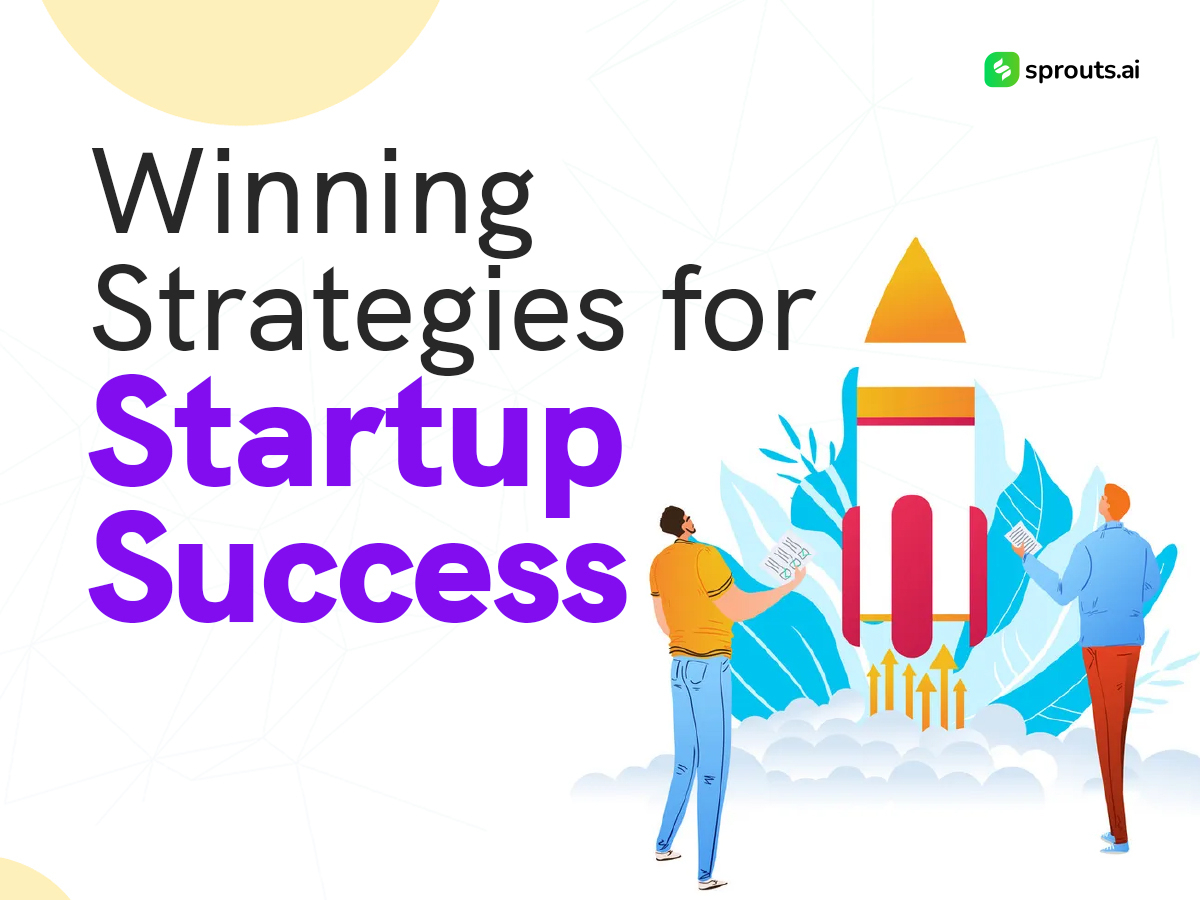Startups face numerous challenges on their journey from ideation to market success. The exhilarating journey of bringing an idea to life and transforming it into a viable product or service demands careful navigation and strategic execution. In this blog, we’ll uncover the key strategies that startups can employ to survive and thrive in the market, focusing on developing an effective go-to-market strategy for startups. Let’s explore how this strategy can be the compass that guides startups toward conquering the market.
1. Innovate with Purpose
At the heart of every successful startup lies a unique and innovative idea that addresses a genuine pain point or fulfills a need. Innovation is the driving force that propels startups ahead of the competition. Before launching into the market, you must meticulously evaluate your idea’s viability, market demand, and potential impact. This is where a solid go-to-market strategy for startups comes into play. By defining your strategy, you can ensure that your innovative product reaches the right audience at the right time and in the most compelling way possible.
2. Craft a Solid Business Plan
A well-defined business plan acts as a roadmap for your startup’s journey. It outlines your goals, target market, competition analysis, revenue projections, and the strategies you’ll employ to achieve success. A carefully crafted business plan helps you stay focused and attracts potential investors and partners who believe in your vision. Your business plan should seamlessly integrate your go-to-market strategy for startups, showcasing how you intend to introduce your product to the market and capture the attention of your target customers.
3. Know Your Target Audience
Understanding your target audience is fundamental to creating a product or service that meets their needs. Conduct surveys, interviews, and market analysis to gain insights into their preferences, pain points, and behavior patterns. This information will guide your product development, marketing strategies, and customer engagement efforts. By aligning your efforts with a well-defined go-to-market strategy for startups, you can ensure that your product resonates with your audience in a meaningful and impactful way.
4. Build a Minimum Viable Product (MVP)
An MVP is about developing the simplest version of your product that still solves a core problem for your target audience. Doing this lets you gather real-world feedback, make necessary improvements, and iterate based on actual user experiences. An MVP helps you avoid overengineering and ensures that your product is aligned with customer expectations. As you refine your MVP, consider how your go-to-market strategy for startups evolves alongside, ensuring that your approach to introducing your product remains agile and effective.
5. Create a Compelling Brand Identity
Your startup’s brand is more than just a logo and a catchy tagline; it’s customers’ perception of your business. A strong brand identity differentiates you from competitors and builds trust with your audience. Craft a consistent brand message, visual identity, and tone of voice that reflect your startup’s values and resonate with your target customers. Your brand identity should seamlessly integrate with your overarching go-to-market strategy for startups, conveying a clear and compelling message that resonates throughout every stage of the customer journey.
6. Effective Marketing and Customer Acquisition
Developing an exceptional product is only half the battle; the other half is effectively marketing it. Utilize digital marketing, social media, content creation, and potential influencer partnerships to reach your target audience. Experiment with various channels to identify which ones yield the best results. Your marketing efforts should be intricately connected to your overarching go-to-market strategy for startups, ensuring that your messaging, channels, and timing are aligned to create maximum impact and engagement.
7. Build Meaningful Relationships
Networking is an invaluable asset for startups. Attend industry events, conferences, and workshops to connect with potential investors, mentors, partners, and fellow entrepreneurs. Building relationships within your industry can open doors to collaborations, investment opportunities, and valuable advice. Through these connections, you can fine-tune your go-to-market strategy for startups, leveraging the insights and expertise of those who have successfully navigated the path before you.
8. Adaptability and Learning
The business landscape is ever-evolving, and startups need to remain adaptable. Be open to pivoting your strategies based on market feedback and changing circumstances. Continuous learning is also essential – stay updated on industry trends, technology advancements, and customer preferences to stay ahead of the curve. Your ability to adapt and learn should be seamlessly woven into your go-to-market strategy for startups, allowing you to refine your approach and seize emerging opportunities.
9. Secure Funding Wisely
Securing funding is often a critical step in a startup’s journey. While seeking investment, be diligent in evaluating potential investors. Look for partners who align with your vision and can provide more than just financial support, such as industry expertise and mentorship. Your funding strategy should align harmoniously with your broader go-to-market strategy for startups, ensuring that the influx of resources propels you closer to your market goals.
10. Monitor and Iterate
Launching your product in the market is not the end – it’s just the beginning. Monitor key performance metrics, gather user feedback, and use these insights to make informed decisions for further improvements. The iterative process ensures your product remains relevant and valuable to your customers. This constant cycle of monitoring and iterating is integral to your overall go-to-market strategy for startups, enabling you to fine-tune your approach based on real-world data and customer interactions.
The journey from startup to market success is both thrilling and challenging. Each startup’s journey is unique, but these guiding strategies, deeply intertwined with a robust go-to-market strategy for startups, can serve as a compass to navigate the complex path to market success. Remember, the road may be rocky, but your startup can achieve remarkable heights with the right strategies and a resilient mindset.

